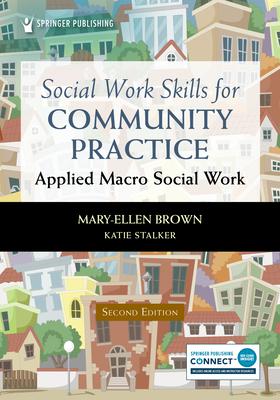Focuses on skill-building to facilitate positive social change
With straightforward content enriched by practical and applicable learning experiences, this comprehensive text prepares social work students for careers in community organizing and macro practice. It focuses on building the social work skills required for organizing communities, including cause-based coalitions, geographically/identity-based communities, and health and human service organizations, to achieve culturally relevant, equity- and justice-driven social change. The second edition presents new information that includes self-care for the community practitioner, social work grand challenges, cultural humility, community dialogue, trauma-informed and resiliency-focused community development, environmental justice, and many other topics.
Emphasizing community practice through the application of macro, mezzo, and micro social work skills, the book uses frameworks drawn from generalist social work practice as well as core competencies identified by CSWE's EPAS. Its focus on a broad range of community practice models makes it accessible to all social workers. The text also highlights the importance of technology as a tool for social work macro practice with skill-building activities. Vivid case vignettes, applied and experiential learning activities, and team and individual-based assignments reinforce content and emphasize skill-building, along with abundant resources for further learning. Purchase includes digital access for use on most mobile devices or computers.
New to the Second Edition:
- Presents a framework for self-care for the community practitioner
- Highlights the importance of community practitioner readiness, competency, and leadership
- Introduces a new trauma-informed and resiliency-focused approach for community development
- Discusses strategic compatibility for interorganizational collaboration
- Introduces youth-based participatory research and empowerment evaluations
Key Features:
- Focuses on skill-building for community engagement and organizing, facilitating community dialogue, and conducting assessments
- Covers planning and implementing community change initiatives and evaluating and disseminating knowledge from change activities
- Provides case vignettes to reinforce content and abundant resources for additional learning
- Offers a complete ancillary package that includes chapter PowerPoints, Test Bank, and an Instructor's Manual with suggested individual and group activities and more
